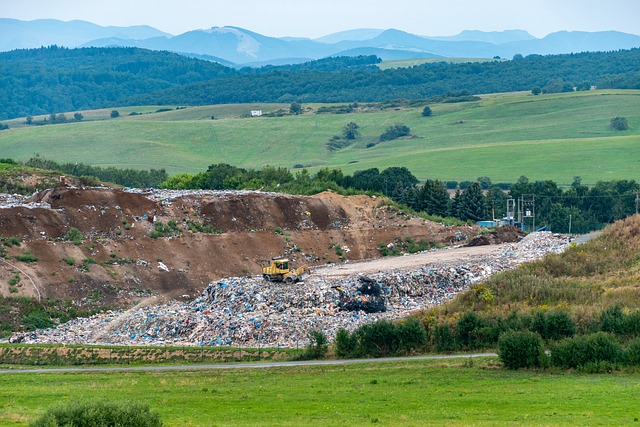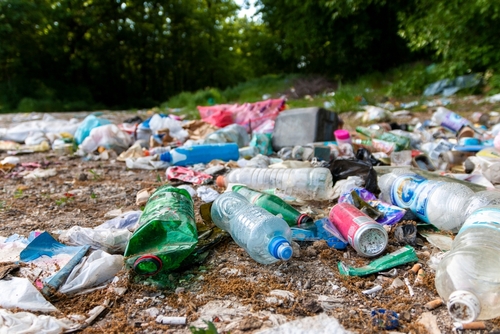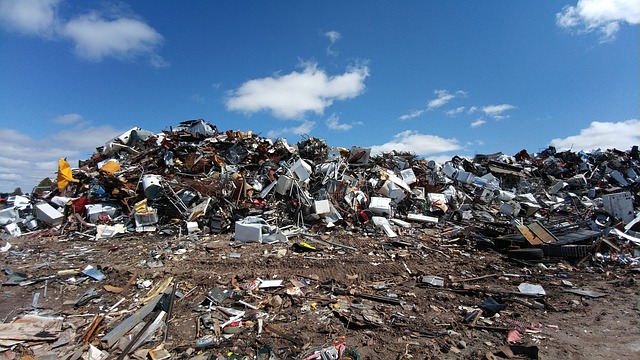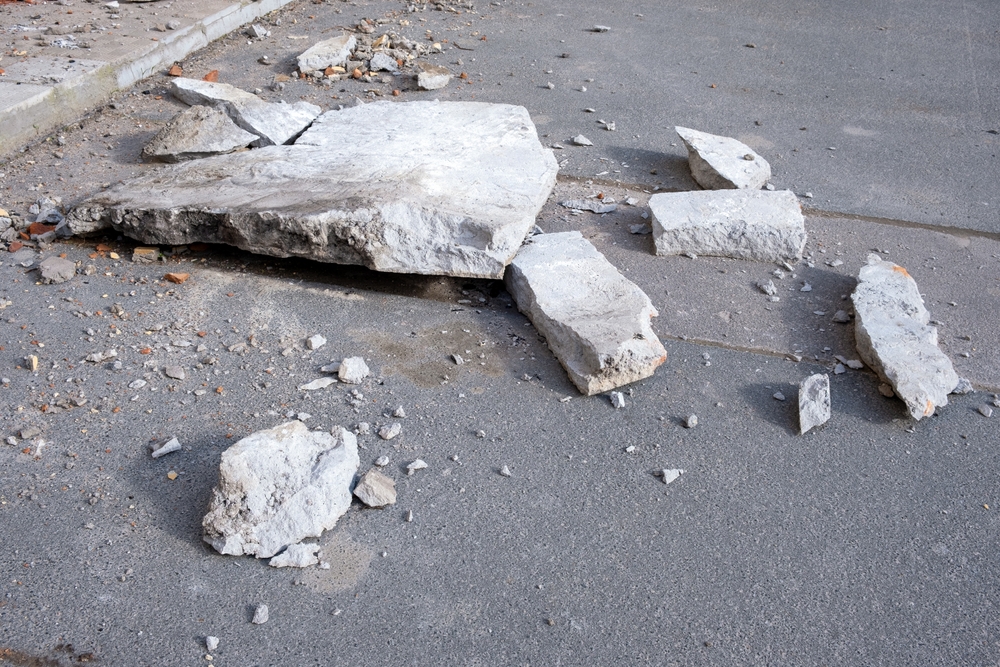April 18, 2024 - Benjamin Ehinger
How Much Is It to Go to the Dump: Understanding Disposal Costs
CALL NOW 844-762-8449
Determining the cost to go to the dump is a practical consideration for anyone looking to dispose of large items, excess waste, or construction debris. While prices may vary based on various factors, including geographical location, type of waste, and the volume or weight of the trash, it is useful to understand the average range you might expect to pay. Typically, landfill fees in the United States fall somewhere between $40 and $60 per ton, with smaller loads sometimes being measured—and therefore priced—by the cubic yard.
The underlying costs associated with dump services can be influenced by more than just weight and volume. For instance, the nature of the waste can alter fees; certain materials like electronic waste or hazardous items may incur additional charges due to the special handling and environmental safeguards they require. Moreover, the logistics of getting your waste to the dump—whether you transport it yourself or hire a professional service—can affect your overall expenses, not just in terms of fuel or service fees, but in the value of your time as well.
 Managing your waste disposal requires understanding the logistics of dump use, including where to go and what to expect in terms of regulations.
Managing your waste disposal requires understanding the logistics of dump use, including where to go and what to expect in terms of regulations.
 When you consider the cost of going to the dump, it’s crucial to recognize the environmental implications and the continuous efforts toward sustainability within waste management practices.
When you consider the cost of going to the dump, it’s crucial to recognize the environmental implications and the continuous efforts toward sustainability within waste management practices.
Key Takeaways
- Average landfill fees range from $40 to $60 per ton or $15 to $30 per cubic yard for smaller loads.
- Additional charges are applied for certain types of waste, reflecting the need for specialized handling and disposal.
- Personal transportation vs. professional waste removal influences the final cost and logistics of utilizing dump services.
Understanding the Basics of Landfills
Before diving into the intricacies of landfills, it’s essential to understand their integral role in contemporary waste management systems and how your waste is processed after disposal.Importance of Waste Management
Proper waste management is crucial for maintaining public health, environmental protection, and resource conservation. At the heart of it lies the landfill, a designated waste disposal facility where municipal solid waste is isolated from the environment until it is safe. It’s more than just a dump; it’s an engineered system designed for waste containment.Types of Waste Accepted
Landfills accept a variety of wastes, categorized mainly as follows:- Municipal Solid Waste: Everyday items such as paper, product packaging, food scraps, and yard waste.
- Recyclable Materials: Objects suitable for recycling, for instance, certain plastics, metals, glass, and paper.
- Construction and Demolition Debris: Materials like wood, drywall, and metal from construction sites.
Cost Factors For Dump Services
When considering the cost of using dump services, the price can fluctuate based on several factors such as the type and volume of waste, as well as the location of the service. Understanding these components will help you manage your expenses effectively.Variable Pricing Structures
The pricing at landfills is not uniform and can vary significantly depending on the type of waste you intend to dispose of and your geographical location. Typically, costs are calculated in tons or cubic yards. For instance, disposing of garbage and ash at a landfill can range between $40 and $60 per ton. If you’re hauling smaller amounts, expect prices around $15 to $30 per cubic yard.- $40-$60 per ton: standard range for general waste disposal
- $15-$30 per cubic yard: estimated cost for smaller loads
Additional Fees and Charges
In addition to the base price, there are often additional fees and charges that can accentuate the overall cost of using dump services. If you’re renting a dumpster, you might face rental charges. The cost of renting a dump trailer can fall between $100 and $250 a day, with variations based on the size of the trailer and the length of the rental period. Additional costs may arise from:- Overweight charges if your truck exceeds the landfill’s weight limit
- Fees for special waste disposal, such as hazardous materials or items requiring special handling
Logistics of Dump Use
 Managing your waste disposal requires understanding the logistics of dump use, including where to go and what to expect in terms of regulations.
Managing your waste disposal requires understanding the logistics of dump use, including where to go and what to expect in terms of regulations.
Location and Accessibility
Your local landfill’s location is a significant factor to consider. Depending on your state or country, facilities may be more or less accessible. Most landfills have specific info on their websites, or you can call them for directions. If your load is small, a pickup truck might suffice, but for larger amounts of waste, a roll off dumpster may be necessary.Scheduling and Regulations
Before heading to the dump, check the landfill’s regulations and hours, as these can vary widely. Some sites may have restrictions on the type of waste they accept. It is essential to schedule your visit accordingly to adhere to environmental regulations and to ensure the site can accommodate your disposal needs.Specialized Waste Solutions
When you’re faced with disposing of waste, particularly hazardous or bulky items, it’s essential to consider specialized waste management solutions. These tailored services ensure that your waste is handled legally and safely, minimizing environmental impact.Hazardous and Bulky Waste Handling
Handling hazardous waste requires strict adherence to safety protocols and regulations. For items that pose potential risks such as reactive chemicals or electronic waste, you’ll want to utilize specialized hazardous waste transportation services. These services include less-than-truckload programs and the use of appropriate container types like 5,000 gallon bulk tankers or vacuum trucks for safe transport to facilities like a waste-to-energy incinerator where waste is converted into energy. Handling Bulky Waste:- Secure transportation
- Compliance with waste regulations
- Environmentally responsible disposal
- Access to specialized vehicles for transport
Junk Removal and Dumpster Rental Services
For large-scale cleanouts or construction projects, you may require junk removal services. These services make the process seamless, whether you’re clearing out a residence or managing construction debris. Considering the convenience and efficiency, renting a dumpster might be the best option for your needs if you have a significant amount of waste. Multiple sizes are available, ensuring that you get a container that fits the amount of waste you’re dealing with. Junk Removal Services:- Seamless large-scale waste removal
- Expertise in proper disposal methods
- Variety of dumpster sizes for rent
- Convenience for projects with over seven cubic yards of waste
Environmental Impact and Sustainability
 When you consider the cost of going to the dump, it’s crucial to recognize the environmental implications and the continuous efforts toward sustainability within waste management practices.
When you consider the cost of going to the dump, it’s crucial to recognize the environmental implications and the continuous efforts toward sustainability within waste management practices.
Recycling and Waste Reduction Efforts
Your active participation in recycling can significantly impact the environment. American waste management systems have increasingly focused on diverting recyclable materials, such as plastic and paper, away from landfills. Recycling reduces the need for new raw materials, cutting down on energy consumption and preserving natural resources. For instance, every ton of recycled paper can save 17 trees and reduce greenhouse gas emissions.Innovations in Waste Processing
Innovation is key to improving the sustainability of waste processing. America is witnessing advancements like the marine transfer station along the East River, which is designed to facilitate efficient waste transfer with a lower carbon footprint. These stations use tug boats to move waste, reducing reliance on trucks and minimizing road traffic emissions. Technological enhancements in these facilities aim to sort and process recycled materials more effectively, ensuring a higher quality of output while also mitigating environmental impact.Local Dump Information
When considering disposal of large items or significant amounts of waste, your local dump can offer services to accommodate these needs. Let’s explore how this works, especially focusing on regional differences and how to contact local facilities for specific information.Regional Differences in Dump Access
- New York City: In the bustling urban environment of New York City, you have specific rules established by the Department of Sanitation for waste disposal. For larger items that cannot be left at the curb for regular pickup, you may need to schedule a special pickup. Additionally, there are workers ready to assist at various drop-off sites, where you can bring items for disposal or recycling.
- South Carolina: The accessibility of dumps can differ in South Carolina, often depending on the county. In many areas, the landfills and recycling facilities are open to the residents for disposing of waste that exceeds the accepted curb limit. It is important to check your local facilities for any fees or restrictions that may apply.
Contact Information for Local Facilities
To find out more about your local dump or waste facility, it’s crucial to contact them directly, as specifics can vary from one place to another. Here are a few ways to obtain this information:- Websites: Many facilities maintain a presence online, providing a wealth of information about their services. You can start at comprehensive resource platforms, where you can search for facilities in North America, or navigate to a dump near you for a more focused search.
- Local Government: Your local or regional government’s sanitation department can be a very helpful source. For example, if you’re a resident of New York City, get in touch with the Department of Sanitation to inquire about rules and regulations.
Frequently Asked Questions
When you’re planning to use municipal dump services, knowing the costs and regulations is key to a smooth experience. Here’s what you need to know.What are the general rates for using municipal dump services?
The cost to dump at the landfill typically varies from $40 to $60 per ton, with smaller loads sometimes charged by the cubic yard.Are there different prices for commercial and residential dump use?
Yes, there can be different pricing structures for commercial and residential users, with many facilities offering varied rates and services tailored to each.What types of waste materials influence the cost at the dump?
Certain materials may incur additional disposal fees due to special handling requirements, including hazardous waste, bulky items, or construction debris.What are the operating hours for local dump facilities?
Operating hours vary; it’s suggested to check with your local dump facility for their specific hours of operation.What are the rules and regulations for using city dump sites?
City dump sites enforce rules regarding the segregation of waste, acceptable materials, and necessary documentation, which can vary by location.How do landfill and dump services fees compare?
Landfill fees are generally similar to dump fees, but they can also vary based on the type of waste, with some recycling centers and waste drop-off locations offering different pricing.RECENT BLOGS
Our Reviews
Glenda Lanier Prowell
1721758635
I have ordered an 11 yard dumpster to be delivered to my house.Lonier was extremely helpful and answered all my questions. The rate was very reasonable.
Cedric Smikle
1721660395
Amber was extremely professional and courteous. She answered all of my questions and even some that I didn’t know I needed to ask.
Cait Kaider
1721243051
I highly recommend Waste Removal USA for their responsiveness and how the staff work hard to provide exceptional customer service. They have done well by us and our clients. Thank you!
Easom Family
1721223306
Louiner Pierre-Louis Is awesome! Did a great job. Will definitely be using this same company for all my dumpster needs because of his awesome customer service! Thank you!!!
tabitha Vazquez
1720539988
Wonderful and fast customer service!
LATEST BLOGS






